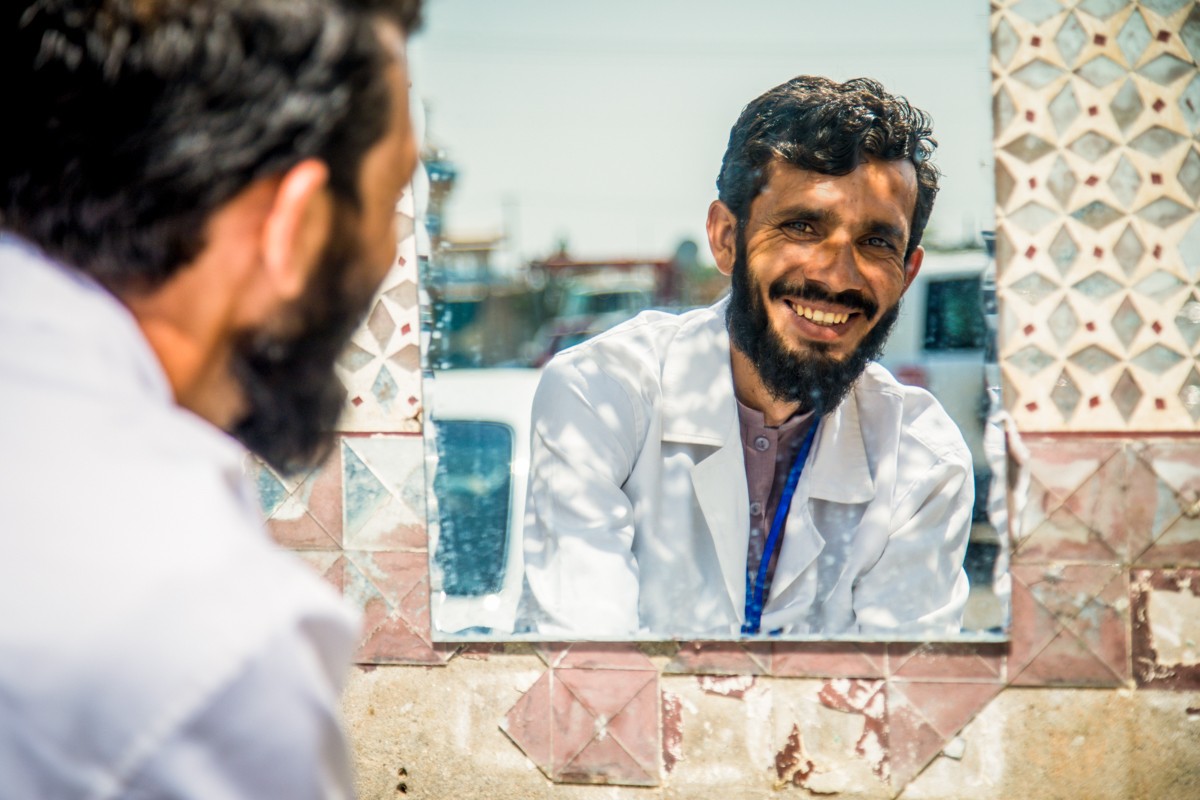
Tackling TB amidst a global crisis
UNDP, 23 March 2021
Vulnerable people around the world affected by tuberculosis (TB) cannot wait any longer for quality testing, treatment and care.
According to the Stop TB Partnership, COVID-19-related disruptions for TB services have reversed nearly 12 years of progress against the deadly infectious disease. Marginalized groups, such as refugees and mobile populations with limited access to health care, are bearing the brunt of these overlapping crises.
UNDP, in partnership with the Global Fund to Fight AIDS, TB and Malaria, and with support from key partners including the International Organization for Migration (IOM), the UN Refugee Agency (UNHCR) and National TB Control Programmes of Afghanistan, Iran and Pakistan, is working to address the urgent threat of TB and remove barriers to care and prevention among Afghan refugees, returnees and mobile populations in those countries. Those efforts are coordinated through a regional grant that benefits populations in need.
The grant offers valuable lessons for maintaining progress against TB during COVID-19 and beyond, which could prove critical in helping the world get back on track toward achieving targets in the Global Plan to End TB 2018-2022, and the Sustainable Development Goal target to end TB by 2030.
1. Community engagement is more than important – it is essential
First and foremost, community engagement is critical for building the trust necessary to deliver effective TB care and education. For reaching migrant populations who live in fear of identification, arrest and deportation, securing trust is paramount.
Health workers found, for example, that migrant populations in Iran often conceal their identity or contact information to protect themselves, making it essential that screenings and follow-up are done by trusted individuals. That is why it was important for health facilities serving migrant communities to be run in close coordination with local NGOs.
That is also why in Pakistan, meetings with Afghan mobile populations that engaged village elders, religious scholars and other community leaders were critical in helping raise awareness of TB, making it more likely that people would seek health services and care. Community-led NGOs such as Sehatmand Zindagi Centers make a vital contribution to these efforts.
2. Services and systems are most effective when they meet people where they are
When people at risk of or living with TB stopped accessing care for fear of contracting COVID-19, active case finding became a necessary and effective strategy to diagnose cases.
In Iran, Pakistan and Afghanistan, equipping trusted health care workers with the tools to perform household screenings was essential to detecting cases early and preventing severe disease. Bringing mobile vans and X-rays to communities also made it easier for migrant populations to get screened – particularly women who may face additional social and economic barriers to accessing care.
Under this grant, UNDP and partners were able to scale up this approach, bringing TB screening tools, medical doctors and refreshments to local villages, where women, children and the elderly turned out in high numbers for care. This mobile strategy was so successful that other provinces will soon be rolling out similar programmes across the country.
3. More funding is needed for better diagnostics and sustainability of programmes
Ending TB will also require increased funding to ensure the right tools and resources are accessible to those who need them.
Chest x-rays, which were made more widely available through this grant, proved critical for diagnosing early-stage TB that would have otherwise gone undetected. In the Iranian city of Mashad, three times as many TB cases were identified in those who initially tested negative as compared to the previous year.
Clearly, these types of diagnostics are very effective. They are also expensive; scaling up to the national level requires that governments and partners increase the resources committed to fight and end TB.
4. Multi-country strategies are effective for dealing with cross-border issues
Multi-country and regional solutions can help countries tackle TB in mobile populations, complementing the key role played by national TB programmes.
UNDP and other multilateral organizations with the support from those national TB programmes and civil society can support cross-border collaboration for longer-term TB solutions – this grant alone led to the development of a regional TB policy, the harmonization of TB guidelines and a commitment to develop a regional digital platform. These regional solutions help facilitate effective coordination among national TB programmes to ensure continued treatment for migrant populations and capacity-strengthening for countries to effectively diagnose and treat TB.
Getting back on track toward ending TB by 2030 requires significant effort and investment. Together, these four lessons can inform decisions about how best to design systems capable of delivering effective care to migrant communities when and where they need it, during crises and beyond.
Acting now is crucial; we will only end this ancient and deadly disease when we break down barriers to care and prevention that hinder the most vulnerable from getting the lifesaving services they need.
Original article here.